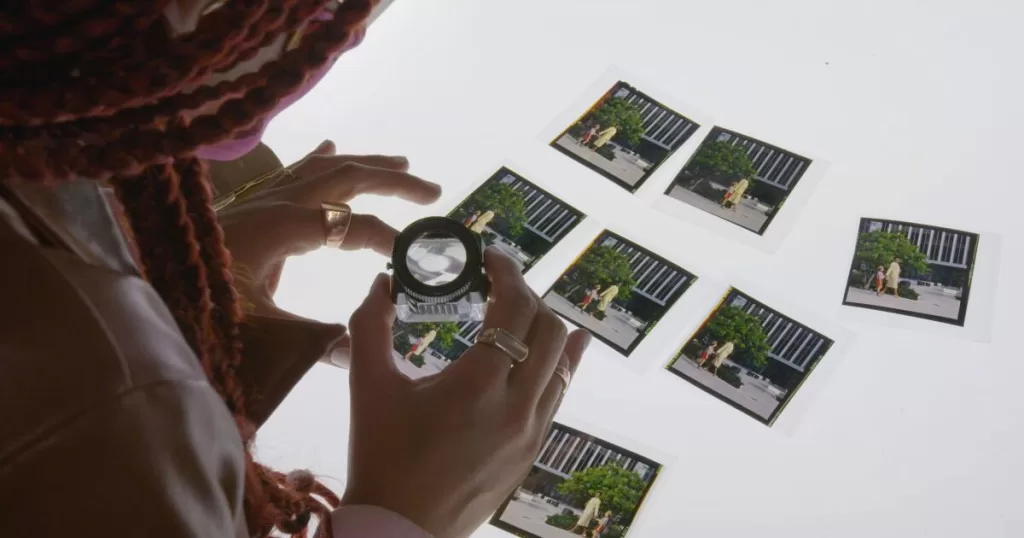Role models come in all shapes and sizes, invariably saying more about the nature of influencing than the person setting the example. A hearty thank-you, then, to pioneering computer-age figure Mavis Beacon for inspiring a documentary these many years later — Jazmin Jones’ effervescent adventure “Seeking Mavis Beacon” — that puts a tech icon’s impact into sharp, funny and thought-provoking context.
The kick is that Mavis Beacon isn’t a real person. But she resoundingly was one to the countless Black millennials who learned how to type from a software game launched in 1987 that featured the bright smiling face of an elegantly attired woman who looked like them and who seemed to be subconsciously selling empowerment.
Sliding into the gap between the creation of a late-’80s marketing invention programmed by three white men and our 21st century world of cyber-unreality, first-time feature director Jones becomes a cheery, determined DIY sleuth investigating a cultural icon. That involves tracking down the beautiful Haitian model named Renée L’Espérance who, after being hired from a perfume counter in Los Angeles, seemed to vanish after her visage launched millions of users into a new world of interactive education.
With the help of a savvy college-age collaborator and self-proclaimed “cyber doula” named Olivia Ross (also the film’s associate producer), the intrepid duo probes the Mavis mytho-history with a charming mix of reverence, intellectual curiosity and humor, like an internet-era Scooby-Doo gang of two. Leads are followed, “missing” signs are posted, spirits are conjured and cultural thinkers are interviewed on everything from the role of women in tech servitude — hello, Siri and Alexa — to such concepts as critical fabulism, data healing and cyberfeminism.
Director Jones, a lively onscreen presence, sees her project as following a path set by pioneering Black filmmaker Cheryl Dunye, whose landmark film “The Watermelon Woman,” we gather, is probably on a playback loop in her Mavis-centric office. Dunye’s noteworthy quote about researching the marginalized (“Sometimes you have to create your own history”) is Jones’ mantra for their archival mission. Early on, we see some playful deepfakes that show Mavis recognized by the likes of Obama and Oprah.
When the documentary shifts to cold-calling, door-knocking and crafty online digging, it turns out there are real, tantalizing details to unearth. The women secure interviews with two of the software company’s founders but wisely don’t accept their upbeat, carefully curated version as gospel, eventually learning that relations didn’t end so amicably between the men, who raked in millions, and the woman whom they paid $500 for her likeness.
As a counter, Jones has a warmer conclusion in mind for the film: a devotional sit-down with L’Espérance — what Jones calls a “wellness check” — if, that is, they can find her. Or if she even wants to be found. Watching Jones and Ross navigate a knotty search that straddles the pitfalls of citizen journalism, the energy of hero worship and the seriousness of ethical inquiry is where “Seeking Mavis Beacon” ultimately finds its truest heart, chronicling a journey that invariably butts up against the problem of whose perspective is taking center stage.
There are some cringeworthy moments watching the pair win at detective work while losing as vulnerable fangirls. But like any soulful quest worth its salt, “Seeking Mavis Beacon” makes the lows as meaningful as the highs, endorsing a wild web world in which mystery and exposure can peacefully coexist.
‘Seeking Mavis Beacon’
Not rated
Running time: 1 hour, 42 minutes
Playing: Landmark’s Nuart Theatre, West Los Angeles
